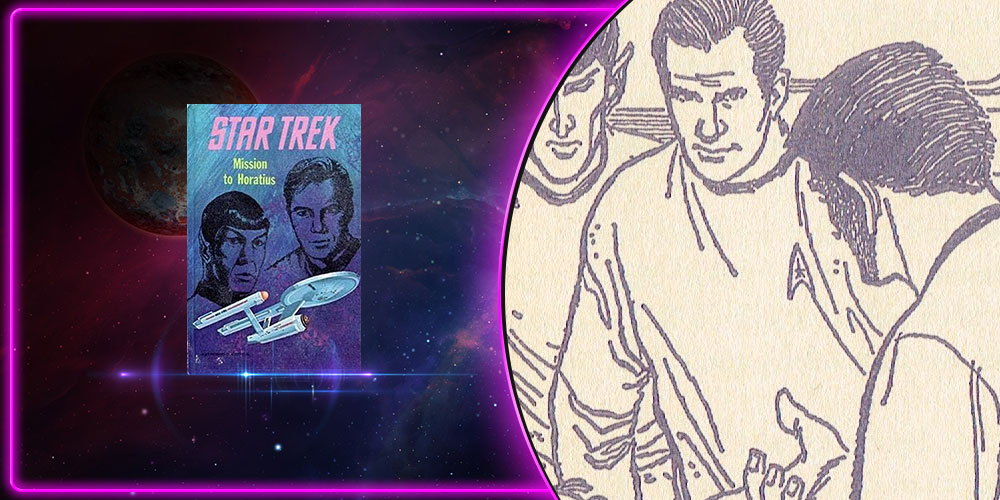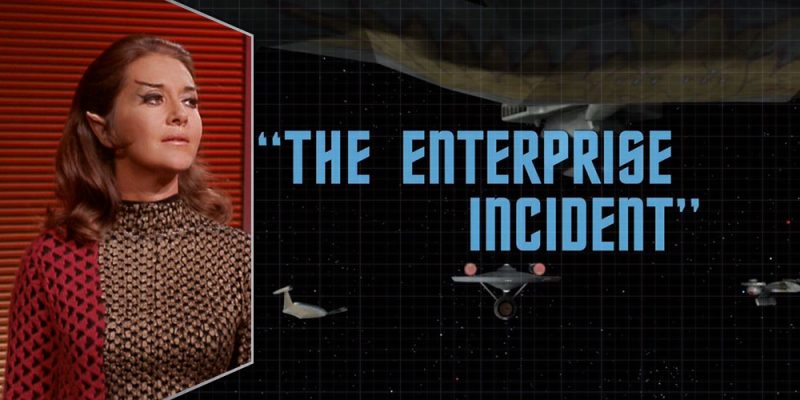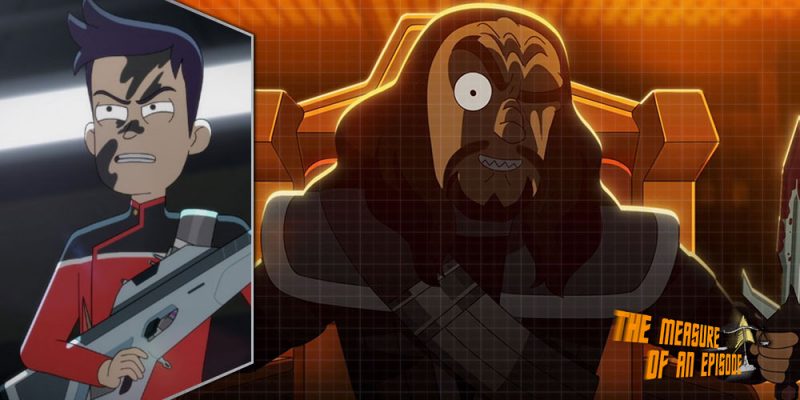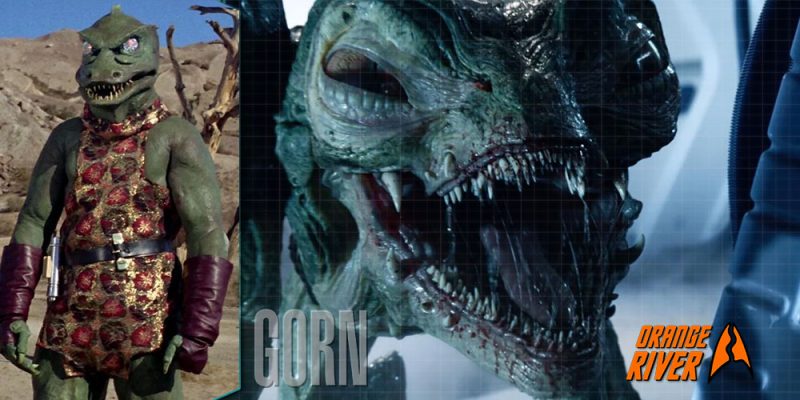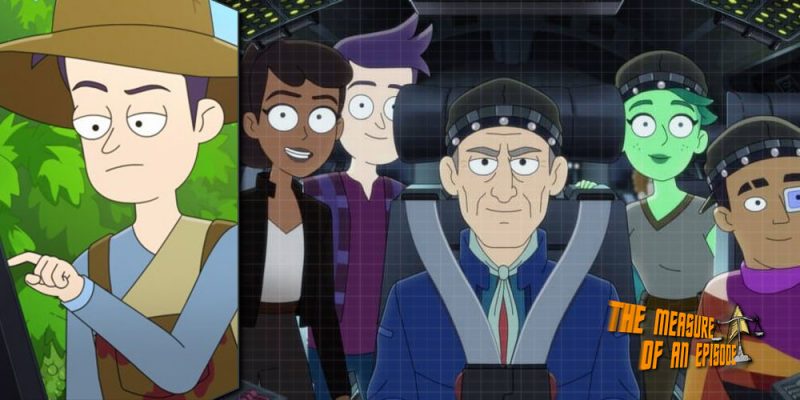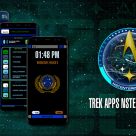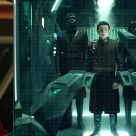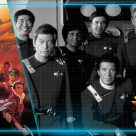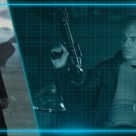“Gentlemen, let us have comments on this fouled-up situation.” – Captain James Kirk
Whoosh! This is a fine kettle of fish! The Enterprise crew is off their respective rockers with a space cafard! Chekov gets high on LSD. Sulu adopts a pet rat who threatens the entire ship with bubonic plague. McCoy teaches said rat to dance.
Crewman De Paul cannot score a wild card in canasta to save his life. Uhura breaks every string on her guitar and pulls a face every time. Nurse Chapel gets schooled in the medicinal use of aspirin. Nobody is interested in Spock’s encyclopedic history lessons. Kirk does not get the girl, but he does get to defeat three strong men in a gladiator fight.
The First Star Trek Novel
No, I haven’t quite gone around the bend. I’m just reading Pocket Books’ very first officially licensed tie-in Star Trek novel, “Mission To Horatius.” Written by Mack Reynolds, and published by Whitman Books, an imprint of Western Publishing, (the same house that gave us the Gold Key Comics) in 1968, this novel was written for children and young people.
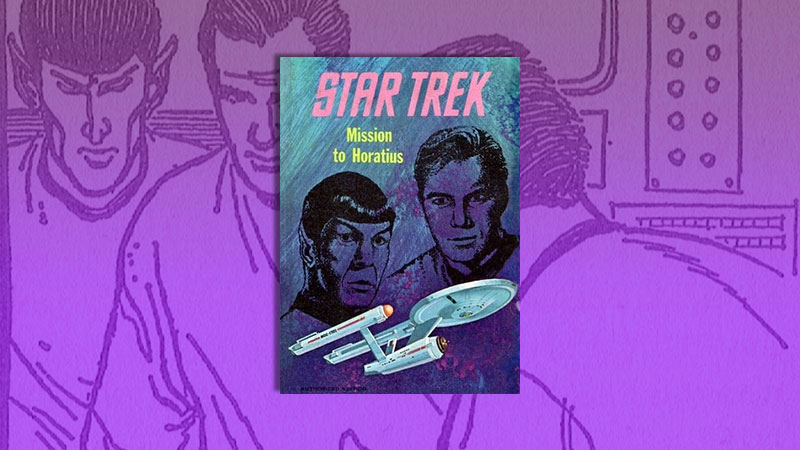
Space Cafard
The novel opens with Dr McCoy expressing concerns regarding the mental health of the crew, and this one element of the book was very well done. McCoy defines “space cafard” as “claustrophobia, ennui … instinctive dread of deep space.”
McCoy sees signs that the crew has been smitten with this affliction and is rightly concerned. Even though Captain Kirk constantly dismisses his concerns and the measures he is taking to keep the crew sane, citing “duty and proud tradition,” McCoy never stops standing up for the mental health needs of those under his care, and I find that admirable and ahead of its time.
Savages, Pseudo-Priests, and Soldiers
The rest of the book, however, is not admirable, and it is a product of its time. The so-called “wild goose chase,” so-called by Dr McCoy, led the courageous, noble crew to three planets in the Horatius system in pursuit of an elusive distress signal.
The inhabitants of the first planet, Neolithia, are, as Captain Kirk deems them, “Nature Boys,” or humans who preferred to leave behind technology and live in the wild. These individuals depicted are First Nations people, and are described with extremely racist language (savages? “Grotesque” face paint? Primitives?) Seriously?
The second planet, Mythra, was a theocracy, and this fact raised some interesting discussions about the two ways that religion is used: benevolently, as represented by gentle Jesus of Nazareth (page 108) and cruelly, as represented by the Phoenicians god Baal (page 34) and the Vulcan god Maripol (page 107), whom Spock characterizes as “a bit devilish.” In true Star Trek fashion, the book is critical of “false gods and false beliefs” (page 108), not because Trek is anti-faith, but because those beliefs are used to harm, destroy, and control people.
This is the case on Mythra. The religious leaders kept their subjects subjugated with daily doses of “anodyne” (LSD). In true Kirk fashion, the Captain ordered the water supply be treated with an antidote to the anodyne, and without regard for the consequences of starting a civil war on the planet, blithely skipped off to the next planet.
On the militaristic Teutonic planet, Bavarya, ruled by what Kirk calls “bullyboys”, possessed of more highly advanced technology than the other two planets, Captain Kirk gets to meet the one female in the book who isn’t a crew member. Anna Sickle is prescriptively blonde, slightly plump, and attractive because she is the archetype Female Character. She does not succumb to Kirk’s virulent manhood even though he, presumably, tears his shirt in gladiator-style hand-to-hand combat.
The Saga of Mickey the Space Rat
Once Captain Kirk has valiantly thrown Bavarya into irreconcilable chaos by his willful destruction of irreplaceable technology, he and Enterprise go on their merry way to the Starbase for shore leave for the cafard-stricken crew.
On the way back to Federation space, however, Sulu’s pet rat Mickey gets loose and leads the crew on a mad chase to hunt down and destroy the creature. And Uhura performs a song in the rat’s honour, “The Saga of the Space Rat,” with the last remaining guitar string.
I spent half the novel killing myself laughing and the other half cringing. But if all I knew of Star Trek and these characters came from this book, these are the conclusions I would draw about the fleet officers’ code of conduct:
Officer’s Code, According to “Mission to Horatius”
You must speak bitterly at all times. Very, very bitterly. If you can’t manage to speak bitterly, at least make an effort to speak sourly or dryly. You are encouraged to snap or snarl if you find it expedient. Better yet, replace speech with snorts.
Your brows must be in a constant state of scowling, and your mouth must be in a constant state of frowning. Your face must be cold at all times. If you must smile, smile wryly. If you must laugh, bark or bleat.
You must endeavour to preserve a constant state of irritation toward those under your command. Do not, under any circumstances, extend professional courtesy, kindness, or understanding to your shipmates. They will think you have gone around the corner.
You must express extreme disgust with every being you encounter from other civilizations. After all, they aren’t driving a starship and are vastly inferior to you, in intelligence, technology, and civilization. Never ever let your disgust remain hidden.
As Captain, you must ask those under your command for their comments and input, and then when they have spoken five words… no more… shut them down with a firm “That will be all.” You must maintain authority, and how can you do that if those who serve under you feel that you have heard their concerns?
As Captain, it is your bounden duty to expect and demand to be treated with respect due to an Ambassador of the Federation. You must never ever forget the dignity of your office. You must refrain, at all costs, from extending this respect to the leaders of the worlds you make contact with.
You must pronounce their names for themselves with sarcastic inflexions at all times. You must address those individuals of other worlds younger than yourself as “son” or “boy.”
As Captain, you must, at all times, rudely chew your junior officers out for imagined offences against General Order Number One, whilst, and at the same time, blatantly flouting that directive yourself.
Never, under any circumstances, stand up. Standing up is an old hat. You must come erect. No not that kind of erect, get your mind out of the gutter, what do you think this is, the novelization of The Motion Picture or something?
Some Historical Context
John Meredyth Lucas, a writer and producer for Star Trek, had concerns with the book and raised them with both Desilu and Roddenberry. He felt that the book was not well written, and had issues with the racist language used to describe Uhura and Sulu.
But were not those offensive language choices “only words”? It certainly is true that, as Uhura said in “The Savage Curtain,” when President Lincoln employed a racially charged word while addressing her, “Why should I object to that term, sir? You see, in our century we have learned not to fear words.”
Roddenberry evidently did not feel that those particular language choices represented his vision for the future. He wrote to Desilu Business Affairs that he would rather see the book deal fall through than he would see the Star Trek property harmed, adding “Star Trek is a valuable property.”
Corrections were made to the novel, but Roddenberry was still dissatisfied. He wrote a five-page dissection of the novel detailing where he felt it went wrong.
Star Trek author John Jackson Miller explains that this was a watershed event: “It was an important moment in tie-in merchandising history, which had been laden with many licensors who cared little about what went out under their properties names.”
Final Thoughts
Star Trek has always been so much more than just a bit of telly. Although no one could have foreseen it in ‘68, when this book was published, Star Trek has become a franchise that has inspired so many people to go into medicine, sciences, engineering, higher mathematics, and the arts. I believe that because of that influence, it is a solemn responsibility to get to write for the franchise in any capacity.
In particular, a book for young people, as “Mission to Horatius” was intended to be, should present the heroes of Star Trek as role models worthy to be emulated. I do find “Mission” to be a moral failure in this regard, but I also believe it to be an important reminder of how far we have come.
But Heavens to Betsy, this book is far out!
I rate it one wild card out of six in Canasta!

